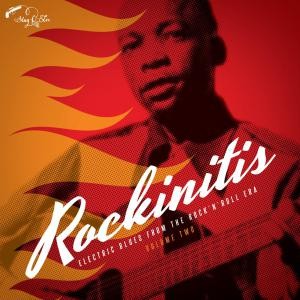Nouvelle Vague Full Discography Torrent

Discography full condensed blue highlight denotes album pick Filter Discography By. Find Nouvelle Vague discography, albums and singles on AllMusic. Picktorrent: nouvelle vague i c - Free Search and Download Torrents at search engine. Download Music, TV Shows, Movies, Anime, Software and more. Torrent search.
Jackie McLean plays like a man in a hurry. Proxima nova regular font free download ttf. There’s no attack to the sound of his alto sax, the notes are just suddenly there, and he jumps from one to another as he negotiates a torrent of ideas in real time. He sometimes misses the centre of a note and lands slightly sharp or flat as if he is playing a high speed game of hopscotch.

“Appointment In Ghana”, from his 1960 album Jackie’s Bag, starts slow, but strikes up a sharp, business-like pace immediately. Dvigatelj cd20 metki grm. The piece, a McLean original, sees Blue Mitchell and Tina Brooks joining him, each of them taking solos over a sleek, cruising rhythm section of pianist Kenny Drew, drummer Art Taylor and understated, underrated bassist Paul Chambers.
Perhaps the appointment in mind is a spy rendezvous, inspired by wartime film titles like Appointment In Berlin or Appointment In Tokyo; maybe the bag on the album cover, a satchel fastened with thread in a figure of eight, is some sort of diplomatic bag for Ghana, which had gained its independence just a couple of years previously. The urgency of the music fits the cosmopolitan allusions of the title: document hand-offs, undercover meetings, drive-by reconnaissances. It’s one of several McLean tracks referencing distant places – the same album features “Fidel”, not an easy title choice in the years leading up to the Cuban Missile Crisis, alongside Tina Brooks’s “Isle Of Java” and (on the CD reissue) “Medina”. But McLean was no exoticist. Between 1959–65 he released more than a dozen albums for Blue Note and the theme and feel of them changes month by month.
1959’s New Soil was full of earthy jams with titles like “Hip Strut”, “Sweet Cakes” or “Greasy”;1961’s Bluesnik explored moods from “Blues Function” to “Cool Green”. Like many jazz musicians, he was writing compositions as quickly as he recorded them, and the variety of titles reflected the speed which he had got them down on tape. McLean was stuck in the studio for a reason: drug problems caused him to lose his cabaret card in the late 1950s, so without gigs, he made his money doing sessions. And the way he chopped and changed in the early 1960s has a sense of cabin fever, as if McLean was trying to break out, somehow, anyhow. The idea of escape is reflected in the titles of many of his later Blue Note albums – Destination. Out!, Let Freedom Ring, One Step Beyond.
They might echo the rhetoric of free jazz, but they are searching for something distinct from it, rooted in the hardbop where McLean cut his teeth. His pieces, his albums and his life are all marked by brutal contrasts between freedom and constraint. What makes McLean so singular is that freedom is often communicated with the melodic fluidity of old school jazz, and constraint through the terse negotiations of avant garde styles. “Appointment In Ghana”, like “Quadrangle” from the same album, alternates flowing solos with angular group formations. This stimulatingly perverse structure, as if McLean is concocting devilish conundrums to wrestle with, reappears many times in his work, on 1963’s “Marney”, 1965’s “Eco”, and elsewhere.
His solo on “Appointment In Ghana” tells all kinds of stories in just a minute and a half. There are no easy melodic resolutions. Instead, he repeats sections, retracing his footsteps before abruptly moving elsewhere, a flourish like an editor’s red pen scrubbing out a sentence. McLean will hit one note and disproportionately sustain it to clean the palette of a previous section of playing.
Most thrilling of all is where he spirals up or down a scale to alight on a higher or lower register, as if he’s suddenly stumbled across where the tune should have been all along. You can sense the whirring of the cogs in his mind all the way through his solo, and it has none of the patient logic, easy balance and eloquent punctuation of Tina Brooks’s tenor that follows later. McLean’s cameo is like a scene from a nouvelle vague or Italian neorealist film where moments of awkwardness or serendipity are a crucial part of the language. His restless solo is particularly poignant because that appointment seems so distant. McLean’s songs about foreign lands were just one part of a body of work in a state of constant search, and he played like he had no time to waste.
Catch up with Derek on his journey: read the first instalment on, the second call on, stop three takes in, the fourth on and the last stop before this.
About Nouvelle Vague Nouvelle Vague is as much a concept as a band, but the concept is so good, and executed so well, that none of that really matters. Before the term New Wave became associated with late 1970s/early-'80s alternative rock, it was the blueprint in the early1960s with the French nouvelle vague film movement and the Brazilian bossa nova scene. Marc Collin (Ollano band member, songwriter, producer and film composer) and guitarist Olivier Libaux decided to link all the nouvelles vaugues by having a number of unemotional female singers treat New Wave songs like old bossa nova tunes.